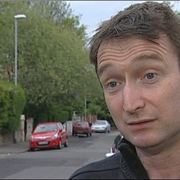THE BEST thing for Manchester to come out of the budget was the acceptance of the vast majority of Michael Heseltine’s report, No stone unturned in pursuit of growth.
This was published last November and argues for more powers to be devolved to Councils and City Regions, like Manchester, and more ‘picking winners’ in business to help growth and create jobs.
Local decision making helps growth and the creation of local jobs. I am glad the government is taking his advice.
I welcomed his report last November, because the devolution of power is something I, and the Liberal Democrats, believe in, and something that has been delivered for the city region in the past couple of years.
Under previous governments of all political affiliations, national politicians have had Manchester’s fate in their hands. Under the last government, it made no sense that ministers made the decision to put Metrolink on hold, not local politicians. Or that the government put restrictions on funding to try and force a Congestion Charge on Greater Manchester. No matter what your view on these issues, it should be local and accountable politicians making these decisions.
The process of devolution started with government supporting the setting up of a joint Greater Manchester Authority. Then, just before last year’s budget, Deputy PM Nick Clegg announced the City Deal, called by Manchester’s Chief Executive, Sir Howard Bernstein, a ‘Game-Changer for the cityr’.
The City Deal gave Manchester city region the ability to maximise economic growth through a range of agreements between the government and Greater Manchester Combined Authority, based on the needs and opportunities of the region’s economy.
This included ‘Earnback’ where the government agreed in principle that money invested in infrastructure improvements by Greater Manchester will be ‘paid back’ to the combined authority as real economic growth is seen. This is the first tax-increment finance-style scheme in England outside London.
The City Deal also meant a shift to local decision-making, the establishment of a Greater Manchester Housing Investment Board, the creation of 6,000 apprenticeships via small and medium-sized businesses; the creation of a local, low carbon funding body, potentially bringing significant extra funding to Greater Manchester. GM will commit resources and expertise to a low-carbon hub to enable it to be a ‘demonstrator’ for government programmes and pilots to reduce carbon emissions.
Another devolution of power has been the Greater Manchester Energy Plan, an agreement between the city region and government announced by Lib Dem minister Ed Davey. This plan accepts that the region is best placed to create the growth and jobs we all want to see. It focuses not just on what we can do for the environment, but what investing in renewable energy can do for Manchester.
One of the objectives of the plan is to be on the cutting edge of innovation and research at the universities in the city, so that Manchester gets the benefit of the new jobs created for local companies such as Siemens on Princess Parkway.
Of course, some decisions still need to be made at a national level, but when they are, government should listen to local people. High Speed 2 is one scheme where I believe the government has done that. It is good for Manchester and the country.
£33bn of investment over 20 years, creating 60, 000 new jobs. 10,000 jobs during construction, 1,400 permanent operational jobs, and an estimated 49,700 jobs in the regeneration and development areas associated with station developments.
There will be two new stations in Manchester, one next to Piccadilly and the other at Manchester Airport.
HS2 is a key part of our priority of moving towards a low-carbon economy. Once complete, HS2 will transfer approximately 9 million journeys from road to rail and 4.5 million from air to rail.
By shortening train times, HS2 will also make investment and economic interest in regions outside of London and the South-East more attractive. This is vital if we are to help rebalance the UK economy.
Other European countries, such as France, Germany and Spain, have already invested in high-speed rail, and have several rail connections which are much faster than ours. The UK is in danger of falling behind unless we make plans to meet future demand, ease capacity and cut down on train times for millions of passengers.
Once completed, HS2 will allow trains to travel at more than 200mph and reduce journey times between London and key cities in the North and in Scotland. It also means that the whole country will be better connected with the rest of Europe.
Lord Heseltine is right. Local decision making helps growth and the creation of local jobs. I am glad the government is taking his advice.
 John LeechJohn Leech is the Liberal Democrat Member of Parliament for Manchester Witihington.
John LeechJohn Leech is the Liberal Democrat Member of Parliament for Manchester Witihington.
This covers the council wards of Burnage, Chorlton, Chorlton Park, Didsbury East, Didsbury West, Old Moat and Withington.
John Leech has a majority of 1,894 and has represented the south Manchester seat since 2005.











